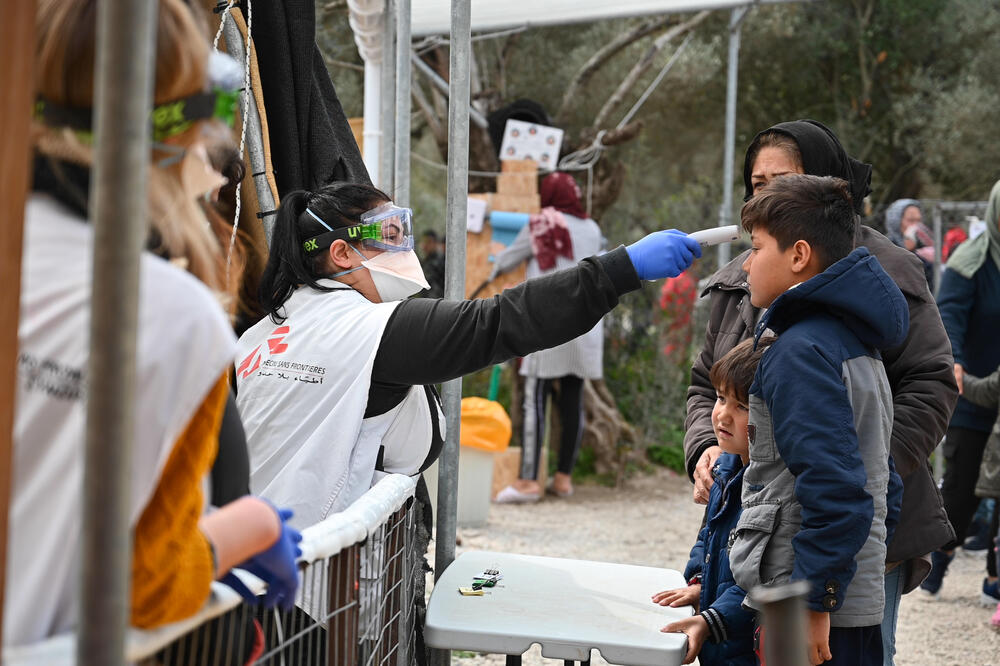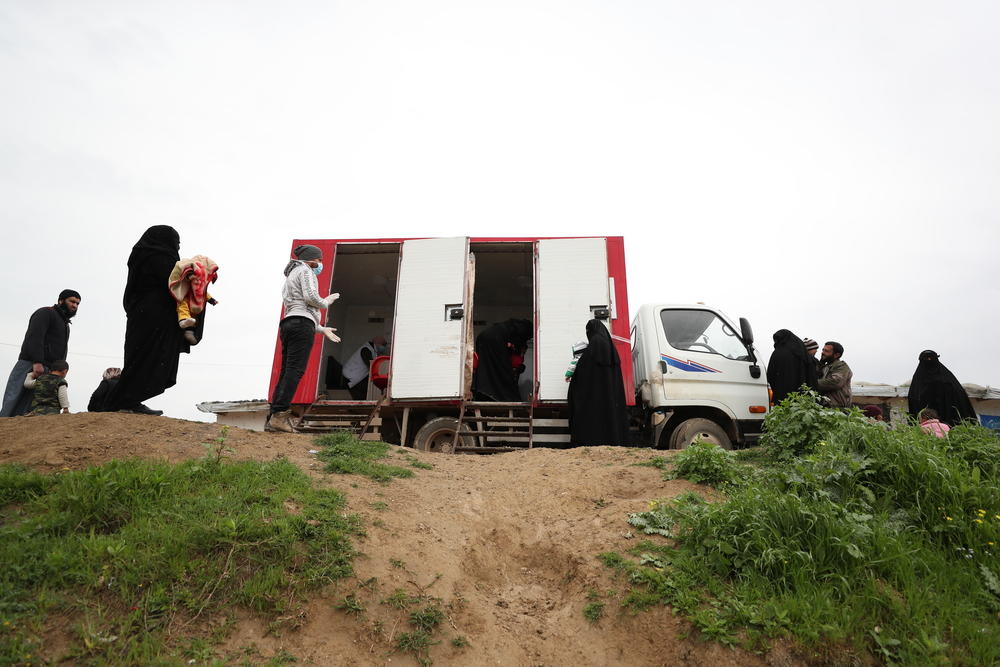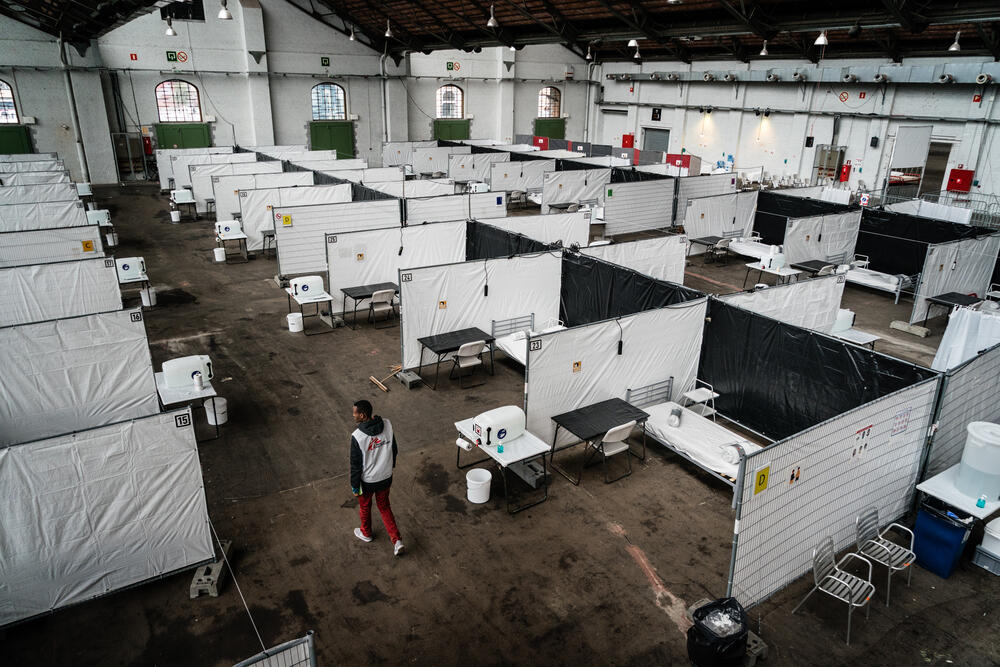Seven things to know about the COVID-19 pandemic
We’ve never seen a global outbreak like the new coronavirus disease. It threatens to overwhelm health systems and health workers everywhere unless we all take immediate action.
Simple measures, including social distancing and proper handwashing, can help flatten the curve of the pandemic.
We are responding to the coronavirus outbreak in more than 70 countries around the world while also working to keep our regular medical programmes running.
We are very concerned about the virus spreading to vulnerable groups such as refugees and other people living in overcrowded conditions, with limited access to healthcare.
Here are seven things you should know about the pandemic and what can be done to slow the spread of the virus.
1. Social distancing saves lives
This is a global health emergency.
With no treatment or vaccine, slowing the spread of the new coronavirus around the world is critical.
One of the most important things we can do is “social distancing”, which means keeping some physical distance from other people and staying at home as much as possible.
In the UK, the government recommends: only going outside for food, health reasons or essential work; staying two-metres (six feet) away from other people at all times; washing your hands as soon as you get home.
By staying home and avoiding large groups, we can dramatically lower the rate of infection.
This keeps everyone safer and helps ensure our healthcare systems don’t get overwhelmed.
We all need to do our part to flatten the curve of this epidemic.
2. Healthcare workers need protection
Health workers on the frontlines of this pandemic are also the most exposed to infection.
We need to make sure they have the personal protective equipment (PPE) they need to do their job safely, so they can help keep the rest of us safe and healthy, too.
We are donating PPE to countries that need it and teaching health workers how to make the most of the equipment they have.
However, on a global scale, we need to prioritise the scarce supplies of face masks, gloves and other essential equipment for health workers to prevent unnecessary deaths.
3. Vulnerable communities face even greater risks
This pandemic is especially threatening to those who are already struggling to get basic healthcare.
We’re very concerned about the safety of refugees and displaced people, including those in Mexico, Greece, Syria and Bangladesh.
These men, women and children often live in overcrowded and unhygienic conditions, which make it impossible for them to protect themselves against COVID-19.

Help us prepare for the next emergency
We’ve introduced infection prevention and control measures in the places where we work while continuing to provide lifesaving medical aid and humanitarian assistance.
At the same time, we are calling for the immediate transfer of those most at-risk people in the squalid camps on the Greek islands to places where all the preventive measures can be applied.
4. Any new treatments and vaccines must be affordable and available to all
Scientists are in a race against time to develop new tools against coronavirus.
Once we do have the proven drugs and vaccines that we need to end this outbreak, everyone should have access to them.
Drug companies must not use this pandemic as an excuse for more profiteering. Public health needs come first.
That’s why we’re calling for no patents or profiteering on drugs, tests or vaccines used for the COVID-19 pandemic.
Governments must also suspend and override patents, and take other measures, such as price controls, to ensure availability, reduce prices and save more lives.
5. People still have other urgent medical needs
We’ve seen health systems completely collapse in the face of an epidemic, like the 2014-16 Ebola outbreak in West Africa.
But we’ve never seen a global pandemic on this scale.
That’s why we’re focused on maintaining our lifesaving medical projects around the world.
People still need access to maternity care, measles vaccines, mental healthcare, surgeries for war wounds, HIV and tuberculosis care – just to name a few.
We’ll keep doing everything we can to respond to COVID-19 while providing medical care to the people who need it most.
“We´ve faced global epidemics before and millions of people could have been saved if it weren't for the high prices charged.”
— MSF Access Campaign (@MSF_access) April 8, 2020
We need to prevent this injustice from happening again. #COVID19 #coronavirus #NoPandemicProfiteering
https://t.co/H3ASBDLlPr
6. Even countries with advanced health systems are struggling to cope
Our teams are fighting COVID-19 on five continents, including Europe.
One might assume that with some of the most advanced health systems in the world, countries such as Belgium and Switzerland would not need an organisation like MSF to help them cope with a health crisis.
But despite their many hospitals providing quality care and their large numbers of medical staff, these countries are simply not used to facing major outbreak situations.
That’s why MSF is supporting health workers and facilities across Europe, as well as vulnerable groups, such as the homeless and undocumented migrants, who are particularly at risk.
7. Be wary of coronavirus myths and conspiracy theories
There are many myths and conspiracy theories about COVID-19 circulating on the internet.
This false or misleading information can come in many forms: from viral posts on social media, to comments made by public figures, to statements printed or broadcast by journalists.
It’s vital that everyone receives clear, factual information about COVID-19. In situations like this, it can cause unnecessary fear and may lead people to ignore important advice about symptoms or preventing infection.
Avoid spreading misinformation and only use trusted sources, such as the NHS and World Health Organization, to stay up to date on the pandemic and to get information on how to best protect yourself and your family.
Above all, be kind and stay positive. We’re all in this together.
COVID-19
COVID-19 is a viral disease that affects the respiratory system.
The high level of medical care patients require has put some of the world’s most advanced healthcare systems under extreme pressure.
Médecins Sans Frontières/Doctors Without Borders (MSF) is deeply concerned about how COVID-19 will affect people living in more precarious environments, such as conflict zones, refugee camps, and places with very limited access to healthcare.


